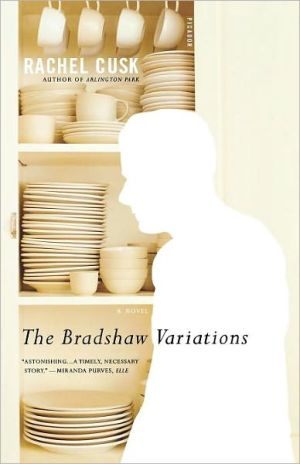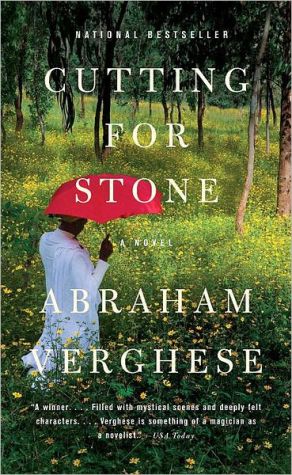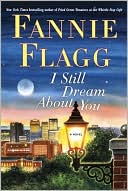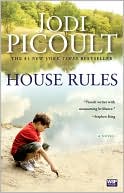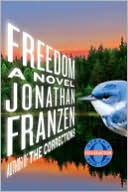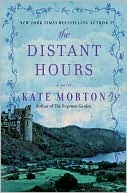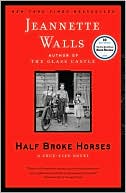The Bradshaw Variations
Since quitting work to look after his eight-year-old daughter, Alexa, Thomas Bradshaw has found solace and nourishment in his daily piano study. But his parents and in-laws wonder why he has swapped roles with Tonie Swann, his intense, intellectual wife. And how can this be good for their daughter?\ Tonie is increasingly seduced away from domestic life by the headier world of work, where long-forgotten memories of ambition are awakened. She finds herself outside their tight family circle,...
Search in google:
From the award-winning novelist Rachel Cusk comes a timely and absorbing story of the harmony and discord of family life.Since quitting work to look after his eight-year-old daughter, Alexa, Thomas Bradshaw has found solace and nourishment in his daily piano study, but his increasingly artistic way of life shocks his parents and his undermining in-laws. Why has he swapped roles with Tonie Swann, his intense, intellectual wife? And how can this be good for Alexa?Tonie is increasingly seduced away from domestic life by the headier world of work, where long-forgotten memories of ambition are awakened. She finds herself outside their tight family circle, alive to previously unimaginable possibilities.Over the course of a year full of crisis and revelation, we follow their fortunes. The Bradshaw Variations reveals how our choices, our loves, and the family life we build will always be an echo—a variation—of a theme played out in our own childhood. This masterful and often shockingly funny novel shows Cusk to be a writer at the height of her powers.The Barnes & Noble ReviewIn the end, this slim but overstuffed novel rests heavily upon its overworked conceit, bending precariously beneath the weight Cusk places on it. It's the sort of book in which a character happens to be reading a thematically relevant story -- in this case, The Kreutzer Sonata itself -- at a key moment. ("What is art?" is also clearly intended to echo Tolstoy's opening, "What is love?" another question Cusk grapples with. Trains, which play a big part in Tolstoy, punctuate Cusk's novel as well. And so on.) The Bradshaw Variations feels very much like a novel built around A Big Idea, a worthy authorial impulse but one that sacrifices the lovely half-book lurking in there somewhere.
I\ What is art? Thomas Bradshaw asks himself this question frequently. He does not yet know the answer. He used to believe art was a kind of pretending, but he doesn't think that any more. He uses the word authenticity to describe what he thinks now. Some things are artificial and some are authentic. It is easy to tell when something is artificial. The other is harder.\ In the mornings he listens to music, to Bach or Schubert. He stands in the kitchen in his dressing gown. He waits for his wife and daughter to come downstairs. He is forty-one, the age when a life comes out of its own past like something out of a mould; and either it is solid, all of a piece, or it fails to hold its shape and disintegrates. The disintegration is not difficult to imagine. It is the solidity, the concrete form, that is mystifying. Disintegration does not involve questions of authenticity, but of a solid form the questions must be asked.\ Mostly, in fact, it is the lodger Olga who comes down first. He hears her tread on the stairs and doesn't recognise it: that is how, every day, he identifies her, by hearing her quiet, slightly plodding step and wondering who on earth it belongs to. She ducks her peroxided head at him, flashes her uncertain train-track smile. For six months now Olga has been embroiled in protracted dentistry. Beneath the metal braces her teeth are grey and disorderly. As a child her mother apparently never took her to the dentist. This was not out of neglect, Olga has told him. It was because Olga was frightened of going, and her mother couldn't bear her to be frightened, or to feel pain. She has told Thomas that she is saving up for a bridge and a set of caps. She has three different jobs and all the money goes on her teeth. She complains of the expense: in Poland the cost of dentistry is much lower. There, she could have all the work done ... 'All!' Olga repeats, making a chopping motion with her hand ... for what she pays here for just one monthly visit.\ These conversations do not entirely engage Thomas. When he talks to Olga he is both there and not there. He is waiting for Tonie to come down, as the platform guard waits for the London train to come through. Tonie's appearances in the kitchen are brief. Like the train she stops, disgorging activity, and then departs again. It is a matter of minutes, but he needs to be ready. He hears Olga ... in some ways he even identifies himself with her, both of them platform dwellers ... but when she speaks he cannot reciprocate. He is as though sealed behind glass. He wonders if she realises this, realises that she can see but not touch him. She drinks tea from a giant Garfield mug and eats cereal, topping up the milk frequently from the plastic container that stands beside her bowl. He glimpses her bare, mushroom-coloured legs beneath the table, her feet clad in large soft slippers. He turns the music up a little: it is an offering, a form of explanation. He wants her to know that he is aware of his own limitations, of his failure to make anything of their conversations in the morning. Sometimes this failure appears to him as something intrinsic to time itself, as an inner force, like decay. They pass and are forgotten, these interludes in the kitchen. And yet they are always the same: he could stand here for a hundred years and still have much the same conversation with Olga. There are, it seems, limitless copies of this conversation, but it never goes anywhere or develops. By the same token, it never dies. It has no relationship to time. This may be because it lacks authenticity.\ At seven-thirty Tonie comes down and Olga goes up. Olga has a cleaning job at the hospital: her shift starts at eight. Tonie gets the seven-fifty train. It interests Thomas to see that while Olga's priority is food, Tonie gives precedence to her appearance. She stays upstairs until the last possible minute, while Olga sits at the table for half an hour or more in her dressing gown, working at her mug and bowl. Upstairs doors bang, taps run, Tonie's footsteps stalk to and fro. Olga gets up and slowly carries her dishes to the sink, her slippers dragging and hissing across the floor, and reties her dressing-gown cord before beginning her unhurried ascent to her room. Sometimes she and Tonie pass on the stairs and Tonie says, 'Hi, Olga,' in a voice that is half whisper, very deep and throaty, very exotic and distrait, as though she has just disentangled herself from a situation that is too complex and passionate to explain. 'Hello!' Olga replies, cheerful as a trumpet.\ The stairs run through the core of the tall, narrow house and the treads are uncarpeted. The footsteps go up and down them like arpeggios up and down a keyboard. To Thomas the rooms at the top have a sweet, tinkling atmosphere, light-filled and harmonious. The kitchen, where he stands in his dressing gown, is in the basement. It is deep and sonorous: it underpins the melody of the house with its static, structural confirmations. Tonie does not like being in the kitchen. She is always carrying things on trays up to the higher regions. She has taken down the curtains to let in more light. Sometimes she cleans it, thoroughly and punitively, but her feelings do not change. Thomas, however, is happy down here. He likes the atmosphere of the bass clef, its fundamentality, its insistence on necessities. It is in the basement that he has begun to consider time, and its relationship to authenticity. It is here that he has discovered an underlying structure, a plan. Often he doesn't change out of his dressing gown until eleven or twelve o'clock. By then he is finished with the revelations of the bass clef. He turns off his music. He is ready to read. Reading, he admits, has to be done on a sofa, upstairs.\ Tonie eats, drinks coffee, standing up at the counter. She wears bracelets that rattle when she lifts her cup to her lips and glances at her watch. She has, he thinks, an atmosphere of quest about her, of honour. She will join the seven-fifty as the soldier joins his departing regiment. She will not think about him all day; she will not think about Alexa, nor about the sun moving in golden panels across the floorboards of their room, the clock ticking in the hall, the sounds of cars and voices that drift in from the street and then vanish, the day passing through the house, passing irretrievably through its core, its very fibres. She will be valiant not to think about these things, but she will derive, he knows, a rudimentary pleasure from it too. It is the pleasure of self: Thomas knows because he has felt it himself. Once it was he who stood there, clean, bright-eyed, dressed for departure, and Tonie who remained behind to witness the day's passage. Did she wear a dressing gown? He isn't sure. He can't recall what she looked like when he was leaving her. She was part of a pattern, like a figure in a tapestry, woven into her setting.\ She puts things into her bag. She says something, but the music is so loud that she has to repeat it, raising her voice. It is Schubert's Fantasiestcke. She says,\ 'I've got a meeting. I won't be back before eight.'\ 'Okay,' he says loudly. 'Fine.'\ He goes to turn the music down but it is too late. She has swung her bag over her shoulder and is moving towards the stairs.\ Alexa is still asleep. She lies in her bed like a girl in a fairy tale. In sleep she is very soft. She exudes something, a kind of mist, as though when she sleeps she sets aside her solidity and takes on the transmutable properties of light and liquid and air. Thomas doesn't want to dwell too much on his daughter's beauty. He looks at her but he can give no name to his looking, no motive. He would like an artist to paint her. It would be easier to look at a painting of Alexa than at Alexa herself.\ Later, downstairs, she sits at the table, neat in her uniform. She wears her hair precisely parted and brushed into a ponytail. She is so orderly: every day it is the same.\ 'Are you going to the shops today?'\ Thomas muses, rubbing his chin.\ 'I don't know,' he says. 'Why, what do you want?'\ 'I need batteries.'\ He stands at the window, looking out at the garden. It is September. The year has always been fixed at this point, pinned to its backing of time like a butterfly in an exhibition case: September is the skewering place, the heart, where the pin of routine is thrust in. But this year it is different. For almost the first time in his life he has not gone back into harness at the summer's end. He has not returned to work: the pin has not been driven home. He is free or he is cast out, one or the other. Alexa is speaking to him.\ '... size for my clock,' she says.\ 'What? What are you talking about?'\ 'You need to get the right size for my clock.'\ 'What clock?'\ 'My alarm clock. It's stopped.'\ He sighs. A little thread of headache is inching across his brow. Why does an eight-year-old child need an alarm clock? It is the pin of routine again, searching for its mark. She is standing in front of him now.\ 'I'll try to remember,' he says.\ She has something in her hand. She places it on the counter in front of him.\ 'That's the size of battery you need,' she says.\ 'Where did you get that?'\ 'I took it out of the clock. It doesn't work any more. I need two. Please don't forget.'\ 'I might forget. I said I'll try.'\ She is frustrated. She wants to impose her will on him, to exact his promise. It is artificial, this conversation. He sometimes has conversations with Tonie that are like this, that are showcases for the determination of one or the other of them.\ 'Please,' she says.\ 'I'll do my best.'\ The doorbell rings. It is her friend Georgina, tall and strong-limbed and responsible, reassuringly earnest. They walk to school together in the mornings, Georgina gripping Alexa's arm when they go over at the crossing and looking wildly about her for cars, as though they might at any moment find themselves under enemy fire. He kisses Alexa goodbye. Later, when she comes back, she doesn't ask about the batteries. He has forgotten all about them. It is only when he is putting her to bed that he remembers.\ 'I'll get them tomorrow,' he says.\ She nods unhappily. Then she says:\ 'Can I borrow your clock for tonight?'\ He is almost angry with her, but instead he feels sorrowful. He pities her for the inanity of her persistence. He is disappointed in her.\ 'All right,' he says.\ 'I want to wake up early,' she says.\ 'I can wake you up.'\ She looks at him. She doesn't trust him.\ 'I'd rather have the clock.'\ 'All right.'\ 'Will you set it for seven?'\ He laughs. 'All right.'\ She sits back in her pillows, contented.\ 'From now on I'm going to get up early and have breakfast with Mummy,' she says. 'I've decided.'\ His heart clenches, just as it does when the music gains its highest note, grasping and grasping out of its own confusion until it reaches its mark and the screw of emotion is turned. The confusion, he sees, is necessary, for it is what the resolution is born from. It was necessary, in other words, for him to misunderstand Alexa in order that he might understand her. He is satisfied by this perception. He opens a book and begins to read to her. Every night he does this, sometimes for as long as an hour. At first he was self-conscious reading aloud, but he isn't any more. When he reads he feels as though he is flying through darkness, lit by the single bulb of Alexa's bedside lamp; he is unbodied, a soaring arrow, a force of pure narration. In her books he finds explanations for everything, for love and survival, struggle and pleasure, happiness and grief, for belief, for the shape and arc of life itself. The only thing that is never explained is reality. He sprawls on her bed while she sits neatly beneath the covers. Her eyes are brown, tawny: in the half-light they seem rich with age, like mahogany. Their beauty is at once his and not his. He does not own them, yet they are within his possession. She does not look at him while he reads. She looks into empty space ... she is visualising. This is one of the causes of his lack of inhibition. Were she to look at him, he would instantly regain the formality of personality. As it is, he can forget himself. At some point, usually, he begins to weep. Unlike most of the people he knows, Thomas has never mislaid his ability to cry. They are clear, abundant tears that roll soundlessly down his cheeks as he reads. It is the stories that release them. Freed from reality, he weeps over the image of life.\ Afterwards he wipes his cheeks and kisses her goodnight, and goes downstairs to wait for Tonie to come home.\ Excerpted from The Bradshaw Variations by .\ Copyright © 2009 by Rachel Cusk.\ Published in 2010 by Farrar, Straus and Giroux.\ All rights reserved. This work is protected under copyright laws and reproduction is strictly prohibited. Permission to reproduce the material in any manner or medium must be secured from the Publisher.
\ Curtis Sittenfeld[The Bradshaw Variations] offers many pleasures. Pretty much every page gleams with Cusk's darkly humorous powers of observation…\ —The New York Times\ \ \ \ \ Publishers WeeklyThe Bradshaw family of suburban London is discontent. Thomas Bradshaw has taken a sabbatical from his job to learn to play the piano; his wife, Tonie, has become head of a university English department; their eight-year-old daughter, Alexa, watches as father and mother begin to suffocate under the failure of their expectations. The Bradshaws' brothers, sisters, parents, and in-laws, though sometimes faintly amusing, are no better off. Sister-in-law Claudia, a painter, never paints, blaming her nonproductivity on husband Howard, Thomas's older brother. Little brother Leo and his uneducated wife, Susie, drink too much—public knowledge because their children tattle on them—and the older generation of parents disapproves of them all. Cusk (Arlington Park) dissects her characters with a surgical precision, and all can be diagnosed with the same bourgeois malady: acute but indeterminate angst about the nature of existence. Cusk is a gifted writer who has a knack for razor-sharp characterizations, but the lack of plot—everyone is sad, little is done—is a serious detriment. (Apr.)\ \ \ Library JournalAs she has done so capably in previous books like The Lucky Ones and Arlington Park, Cusk tours the reader through the gentrified neighborhoods of London and its surrounding villages. The Bradshaws at the center of this novel are Thomas and Tonie, who have recently switched household roles. Tonie has accepted the post of head of her university's English department, providing Thomas with all the excuse he needs to drop out of the workforce, take up the daily nurture and care of eight-year-old Alexa, and, at leisure, pursue his dormant musical interests. On the periphery of their lives are related Bradshaws—Thomas's brothers and their families and two sets of grandparents, who are either slightly bemused by or thoroughly disapproving of the new domestic arrangements. VERDICT With stylish writing and trenchant insight, Cusk mines the emotional killing fields of domestic disharmony in another compelling serving of highbrow chick lit. Recommended.—Barbara Love, Kingston Frontenac P.L., Ont.\ \ \ \ \ Kirkus ReviewsDiamond-hard portrait of family life as warfare. Sometimes it's a simmering conflict, like Thomas and Tonie Bradshaw experiencing confusion and resentment over their redefined roles as he takes a leave of absence to care for their daughter Alexa when Tonie is promoted from part-time lecturer to full-time head of her university's English department. Sometimes it's loud, disorderly combat, prompted by Thomas' brother Howard perennially augmenting the chaos in his household while wife Claudia wails that all these kids and animals and stuff are keeping her from painting. It can be ugly hand-to-hand maneuvers for advantage, as the men's father, Charles, refuses to have tea because his wife is late, or forces her to get rid of six boxes containing childhood mementos, which she weepily manipulates Thomas into storing in his much smaller house. Or it can be the detonation of really nasty landmines: "What a waste!" moans Mrs. Swann when daughter Tonie proudly displays new curtains she had made from antique silk. "I've got boxes of old pairs I could have given you . . . all beautifully lined, with proper pelmets." Only the youngest Bradshaw brother Leo and his wife Susie don't seem aggressive-and that's because they're drunk most of the time, as their young children are well aware. The Swanns and elder Bradshaws are cold, withholding monsters, Claudia is a professional martyr, Howard is jovially clueless, Leo and Susie are drowning in insecurity; Thomas and Tonie, though more substantially characterized, are no more engaging. The plot, such as it is, lurches forward during Thomas' year at home as he becomes unmoored and Tonie is tempted by infidelity, developments that both play a role in Alexa'snear-fatal bout of meningitis. Somehow it's no surprise that this dark tale climaxes with the dog dying. There's no denying Whitbread Award winner Cusk's talent and gimlet eye for revealing details, but she used to have more compassion for human frailty than she's displayed in her recent work (The Last Supper, 2009, etc.).\ \ \ \ \ The Barnes & Noble ReviewOnly a very brave writer, or a very foolish one, would begin a novel with the words "What is art?" The British novelist Rachel Cusk is no fool, and indeed there is both courage and ambition on display throughout The Bradshaw Variations, her seventh novel, which is indebted to and in conversation with Tolstoy's novella The Kreutzer Sonata, as well as his less well known 1896 nonfiction work, What is Art? As Zadie Smith demonstrated with On Beauty, which owed similar debts to Howards End, when a talented novelist seeks to reconceive yesterday's masterpieces through a contemporary prism, there is potentially much to be gained.\ Using the three Bradshaw brothers Thomas, Howard and Leo as the root, third and fifth of her tonic chord, Cusk examines Tolstoy's assertion that art is based "upon this capacity of man to receive another man's expression of feeling and experience those feelings himself." In a series of delicate and finely observed scenes, her characters generally fail that essential empathy, and with it their art, both created and lived, also fails. Over the course of the story, which spans a year, Thomas has decided to spend a year at home, learning the piano, while his restless wife Tonie accepts a promotion that returns her to the workforce, leaving him to care for their seven-year-old daughter Alexa; Howard, a successful businessman, experiences a health scare -- a spot on his lung -- while trying to manage his neurotic wife Claudia's disappointments and frustrations. Leo, the mild youngest brother, and his alcoholic wife Susie are gestured at and then largely abandoned. But the presence of an elder generation of unhappy and dysfunctional parents suggests that, no matter what the generational trappings, the song remains the same.\ Cusk is at her best when she steps down off her authorial podium and brings her infallibly sensitive eye to the rhythms of these wounded, struggling families. There's a lovely, true scene in which Howard is drawn into the warm intimacy of his piano teacher's home. "When he comes here he is reminded of a closer more sensually vivid experience of the body that he did not realise, until now, he had forsaken." But Cusk deflates these moments when she switches into lecture mode, a voice more suited to (and borrowed from) Tolstoy's era than our own, where it smacks more of pedantry than wisdom. And so the bridge she has built between the centuries teeters and ultimately collapses beneath the weight of too much portentous philosophizing. Open The Bradshaw Variations more or less at random, and you're likely to find a passage much like this one:\ \ It strikes her now that life is not linear, a journey, a passage, but a static process of irreversible accretion. It is a perspective that moves, passing over it all like the sun, now illuminating, now casting into shadow. The angle changes, the relation of one thing to another, the proportion of dark to light; but experience itself is block-like, is cumulative and fixed.\ \ Declamatory sections like this one are a shame because, besides being tedious reading -- especially when they come hard upon one another as they do here -- these unwelcome authorial intrusions choke a narrative that otherwise unfolds with subtlety and grace. That may well be part of The Bradshaw Variations' game -- as the title and the opening question suggest, this is a book with a keen self-awareness about art and the artist's role in creation (as well as in self-creation, particularly among the novel's women). But one never escapes the feeling that there are two books uneasily joined here, an artful domestic drama married to a manifesto on creativity and its discontents, and one wishes Cusk hadn't hammered home the latter so relentlessly.\ In the end, this slim but overstuffed novel rests heavily upon its overworked conceit, bending precariously beneath the weight Cusk places on it. It's the sort of book in which a character happens to be reading a thematically relevant story -- in this case, The Kreutzer Sonata itself -- at a key moment. ("What is art?" is also clearly intended to echo Tolstoy's opening, "What is love?" another question Cusk grapples with. Trains, which play a big part in Tolstoy, punctuate Cusk's novel as well. And so on.) The Bradshaw Variations feels very much like a novel built around A Big Idea, a worthy authorial impulse but one that sacrifices the lovely half-book lurking in there somewhere.\ --Mark Sarvas\ \ \
